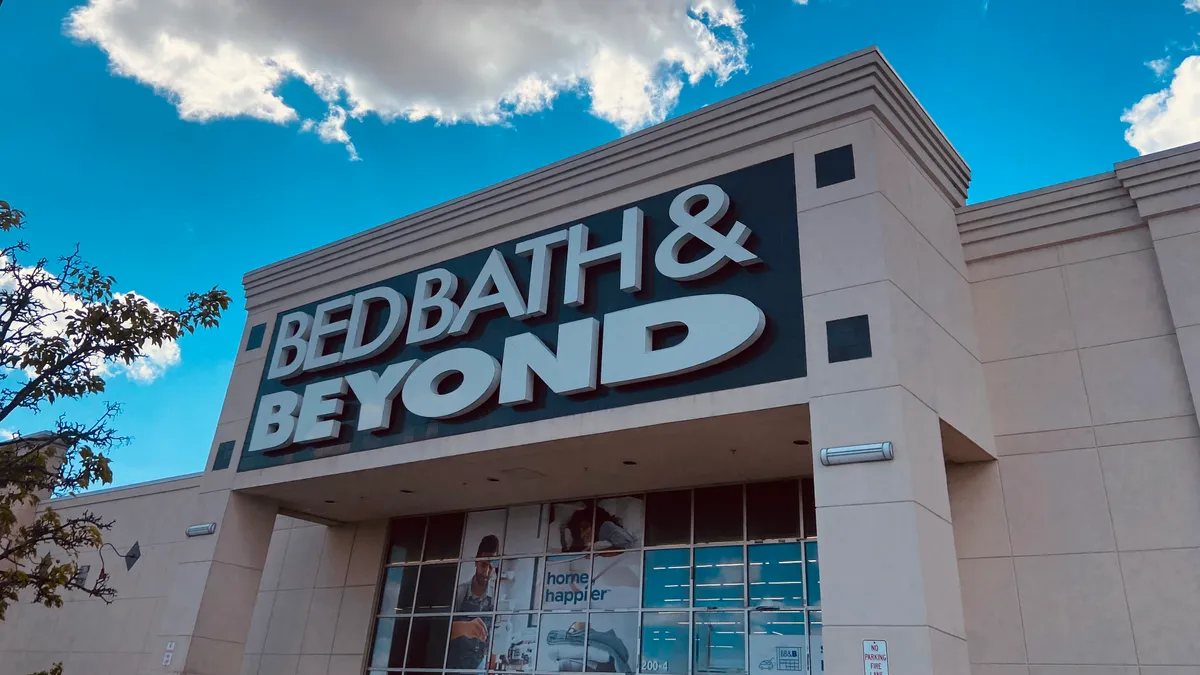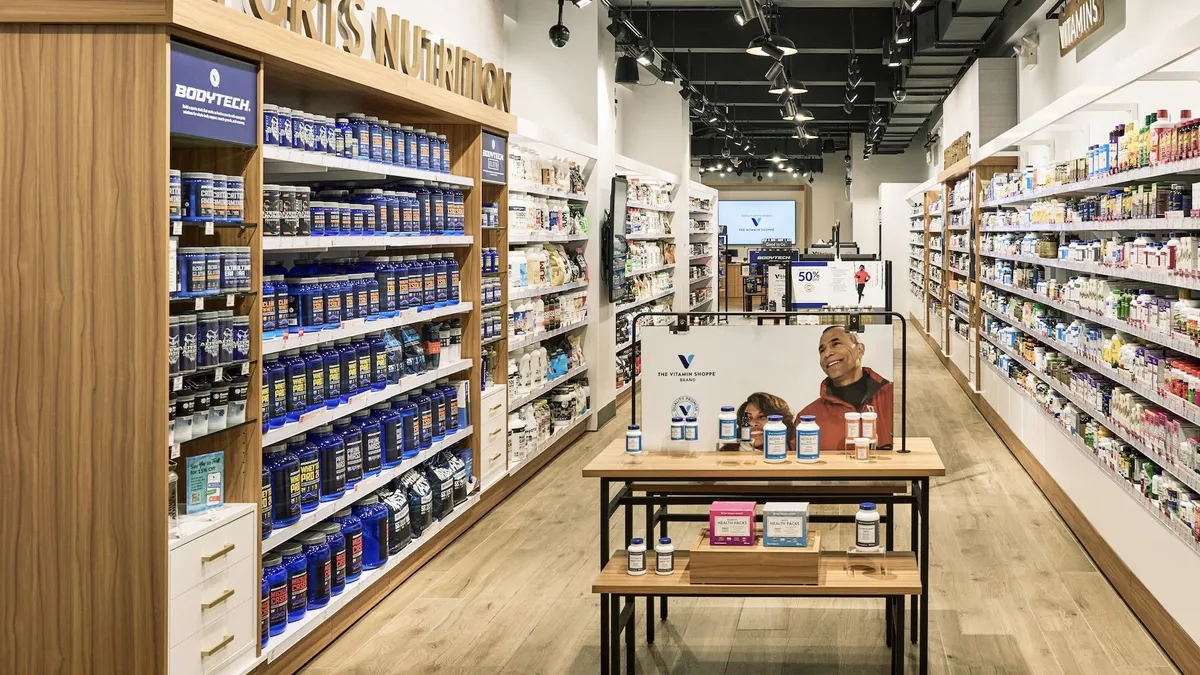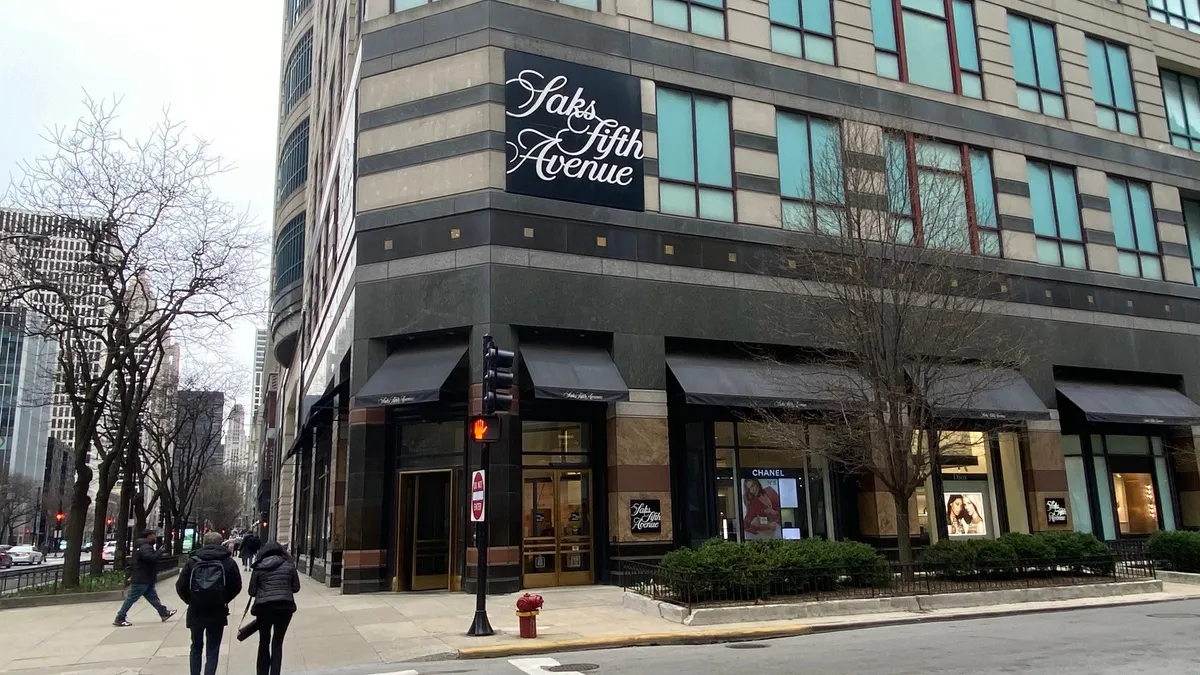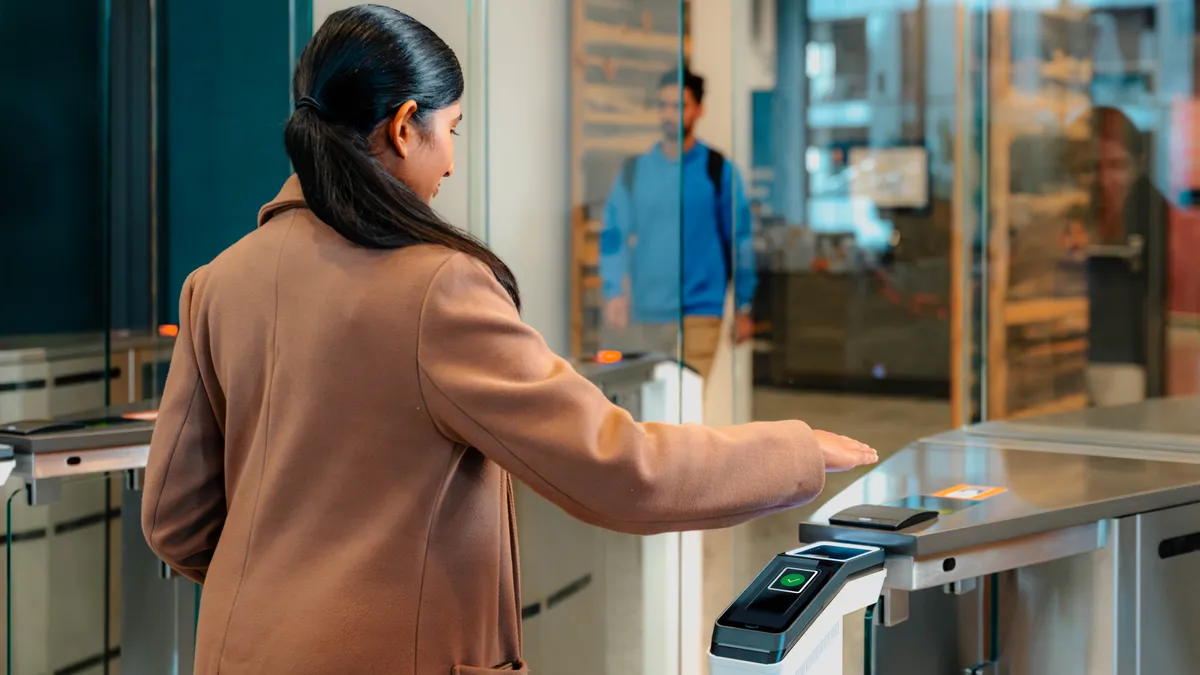Amazon Go gained some new competition. Earlier this month, 7-Eleven announced it is piloting a cashierless concept at its Irving, Texas, headquarters.
The 700-square-foot store, while currently only accessible by the convenience store's employees, includes popular 7-Eleven products like beverages, snacks, groceries, over-the-counter drugs and non-food items.
"Ultimately, our goal is to exceed consumers' expectations for faster, easier transactions and a seamless shopping experience," Mani Suri, 7-Eleven senior vice president and chief information officer, said in a statement. "Introducing new store technology to 7-Eleven employees first has proven to be a very productive way to test and learn before launching to a wider audience. They are honest and candid with their feedback, which enables us to learn and quickly make adjustments to improve the experience."
Much like Amazon Go, 7-Eleven's cashierless store is powered by an app, which distinguishes one customer's purchases from another's in the store through a mix of algorithms and predictive technology.
Competition in the space is heating up, and for good reason. Nearly half of consumers using unattended retail (including vending machines, cashierless stores and self-serve kiosks) do so because it's faster than traditional retail, according to a report from PYMNTS.com and USA Technologies. And among consumers that use digital wallets, 78.1% said they want to make purchases using these channels, and 69.5% of those users would actually pay more for an item if it could be bought through unattended retail.
To respond to consumers' growing appetite for checkout-free retail, more tech companies are cropping up to expand the reach of these services. Zippin late last year announced it secured $12 million in a Series A funding round, which it plans to use to open more locations within grocery stores, convenience chains, sports facilities and airports. Trigo raised $22 million to help it scale the technology to larger store sizes, and autonomous checkout startup Standard Cognition raised $35 million in a 2019 funding round.
But as locales like Philadelphia, New Jersey, San Francisco and, most recently, New York City have passed legislation banning cashless stores, it puts into question the viability of such retail models.
The discussion forum on RetailWire asked its BrainTrust panel of retail experts the following questions:
- Do you think there is a real future for cashierless stores in the convenience store channel?
- Will 7-Eleven's commitment to digital technologies be a point of competitive difference for the banner going forward?
Here are eight of the most insightful comments from the discussion. Comments have been edited by Retail Dive for length and clarity.
Cashierless stores provide the ultimate convenience value
Harley Feldman, Co-Founder and CMO, Seeonic, Inc.: Cashierless stores will be part of the retail landscape in the future for two reasons — cost of labor and convenience. The demand for cashierless stores will be the highest for everyday items in dense consumer areas. More and more prepared food items will be added to the store inventories.
7-Eleven's commitment to digital technologies will be a competitive advantage. Some of their ideas are getting to be table stakes in the convenience market — frictionless shopping experience, healthy foods, and predictive analytics.
While the tech may be 'cool,' it requires investment upfront
Brandon Rael, Director, Alvarez & Marsal: The convenience store segment is a prime place to experiment with Amazon Go-like stores. While there is significant potential in this space, the cashierless technologies are still relatively in their infancy stages and require a significant upfront investment. There certainly is the "cool factor" of waving your app while you walk in and walking out with the product without having to use your credit card, cash or mobile app to pay.
Key to 7-Eleven's strategy is to really qualify and quantify the success measures at this innovation testing ground. Are there truly incremental cost savings, gained efficiencies, increased conversion and increased margins that will come out of this experiment? There ultimately has to be a financial benefit to this innovation lab before scaling this model out beyond its headquarters.
'Hopefully they went to school on what worked and didn't work at Amazon Go'
Zel Bianco, President, founder and CEO of Interactive Edge: [7-Eleven CEO Joe] DePinto's decision to tackle this is a good idea and especially ... sooner than other retailers. Hopefully they went to school on what worked and didn't work at Amazon Go so they avoid mistakes and improve the experience. I worry that the human contact that most of us expect when walking into a store will be missed, especially in rural and suburban areas where it may be one of the few places to have interaction with neighbors. So in other words, it's a little spooky!
Given increasing bans on cashless stores, this model will work for some but not all
Lee Peterson, EVP Thought Leadership, Marketing, WD Partners: Didn't NYC just pass legislation that stores have to take cash? You can expect more of that in urban settings. So given that, I'd say this is the future of many c-stores, but certainly not all. And personally, I see someone like 7-Eleven rolling out WAY more of these than Amazon. The 900-pound Seattle gorilla likes to dabble and learn, but a massive physical footprint? Not so much, they're smarter than that.
The competitive difference lies in 7-Eleven's commitment to digital tech
Bethany Allee, Executive Vice President Marketing, Cybera: The c-store channel is near and dear to my heart. It is also antiquated. A commitment to digital technologies is a competitive difference that is currently causing massive disruption in the channel. In addition to being the leading innovators in the space, 7-Eleven has the respect and credibility needed to make things happen in this extremely tight knit community.
Cashierless checkout is the future for c-stores
Ken Cassar, Vice President, Research, Shoptalk: This is a smart move for 7-Eleven. Profits from this store will undoubtedly not cover the tech development costs, but it allows them to hone important AI/Machine Learning/Computer Vision skills, observe consumer response, and create an informed strategy for what's next. And I do believe that cashierless checkout is the future in the convenience sector.
The need may not be there
Dave Bruno, Director, Retail Market Insights, Aptos: Honestly, I am not convinced that consumers are clamoring for cashierless convenience stores. I have not heard much of an outcry about long wait times for morning coffee and donuts. And beyond reduced wait times, I don't really see much benefit to the shopper. The question, then, is whether the retailer benefits from detailed basket and shopping behavior analytics justify the big costs. I am not so sure they do in the convenience store.
Removing friction and speeding up checkout process is the goal
Gib Bassett, Customer Success Director, Salesforce: When you think about a typical convenience store shopping mission, this is brilliant. Last minute, unplanned, and on the go probably describes the common consumer need. Convenience is defined as "the state of being able to proceed with something with little effort or difficulty." This all being the case, and competition for walletshare only intensifying, removing as much friction and speeding the buying process is arguably imperative.
Of course collecting the data for understanding consumer behavior helps tailor other elements of the [customer experience], but the focus here is most clearly on meeting a high value unmet customer need [in my opinion].






















